Women’s Rights in Bahrain and Migrant Worker’s Rights in Bahrain
Mona Almoayyed, Managing Director of Y.K. Almoayyed & Sons
Unfortunately, what happened in February was like a heart attack to the entire economy.
Interview with Mona Almoayyed, Managing Director of Y.K. Almoayyed & Sons
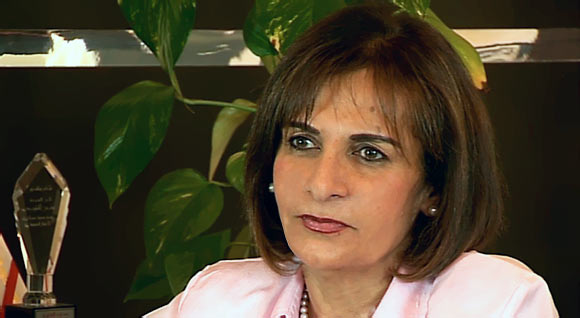
There is uncertainty in the region and this has put a break on consumer spending and investments. My question is, what is your own perception of the business climate in Bahrain and were does Bahrain go from here?
January was a fantastic month, we were above the budget 10%, above last year by 20%, we were really very optimistic about 2011. Unfortunately what happened in February was like a heart attack to the entire economy.
What happened in Bahrain was very unfortunate and was unexpected, we started the year 2011 so well, January was a fantastic month, we were above the budget 10%, above last year by 20%, we were really very optimistic about 2011. Unfortunately what happened in February was like a heart attack to the entire economy. For the first quarter we lost money for the first time in the history of our group. But since then, April wasn’t very good, but May is higher than the budget and last year, but still accumulative figure year to date we are lower than the budget and last year. I am hopeful that we will end the year the same as last year or in the worst scenario down by 10% to last year. We are very optimistic that we will recover in the coming months.
I don’t think that something like that will happen to Bahrain again. We’ve learned from our mistakes and I think the government is really going to take the right steps to improve democracy and listen to the people. The big example to this is this new national dialogue which is going to include more than 300 people of different groups of Bahrain. This will move toward more efficiency, democracy and human rights 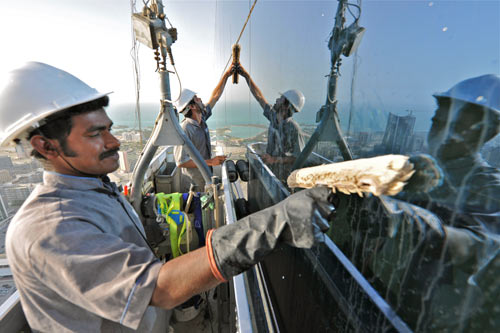
How is Bahrain different from other countries?
In my opinion Bahrain has some charming characters. Bahrain is a liberal, multi culture society. The Bahraini people are always welcoming to foreigners and very friendly by nature. We are the only country in the GCC which is not dependent on oil; we are only 20% dependent on oil and 27% on the financial services sector.
We have a strong Bahraini labor force. In our company 30% of our employees are Bahraini, which you do not find in other GCC countries We are tax free country and for setting up new businesses is the least expensive compared to other GCC countries, the cost of living is very low compared to Europe and Dubai. Our petrol is subsidized; food such as meat, sugar, rice and flour is fixed by the government.
Education and health are free.
What do you view as the main challenge for the future of Bahrain?
I think the main challenge is for Bahrainis and nationals to be proud of their Bahraini identity rather than which sector they come from. We are really all working toward this because we are all educated. Bahrain has the highest percentage of educated people in the GCC countries. 90% of the people are literate. We are now trying to form societies that support the middle and liberal people rather than to follow the religious sects.
We are between two fires, the Shiaa Mullahs and the Sunni Salafis. They are both very conservative and religious. They use religion to gain power. It is time that we should separate religion from politics. We do not want to be on either side, we are liberal, and we believe in human rights, we believe in liberties, individual freedoms. It is an important part of our upbringing.
How do you assess Bahrain’s protection of migrant workers and what are the reforms you would like to see adopted?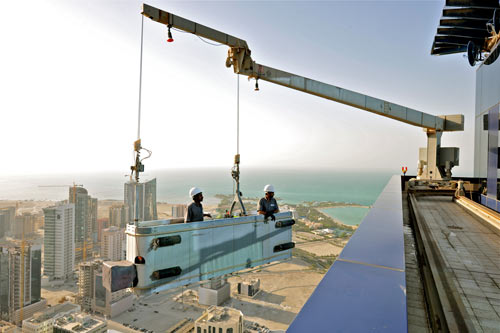
Bahrain is one of the first GCC countries that have societies to protect migrant workers. It was established in 2005, the idea behind it was to take care of all the migrant workers and especially the house staff, who don’t come under the labor law. In the past they have been abused because they don’t’ have the numbers of hours, they don’t have a place to live, they live with the family and many families do not take care of them. They don’t feed them well or let them have the normal human standard. Migrant Workers Protection Society has a shelter for abused nannies. We have taken over 840 cases since 2005. The cases of abuse vary from non payment of salaries to physical abuse.
Only in Bahrain construction workers are not allowed to work in the hot summer months in July and August between 12 pm and 4 pm. It is really a very good and human step in Bahrain. In the past many workers use to die because of sun strokes. MWPS was one of the NGO societies which have asked for this ban.
According to our labor laws there are many regulations that companies should follow to accommodate laborers, but in real life these regulations are ignored. Our members visit these labor camps and try to improve the standard by renovating the kitchens and the bathrooms.
As a society we continuously try to help but unfortunately we are restricted by lack of funds as we depend purely on donation from people, businesses and banks. As a result of lack of safety many fires and accidents happen. In some case we call the ministry of labor for inspection of the camp.
How big is the problem of not respecting migrant workers and their rights in Bahrain?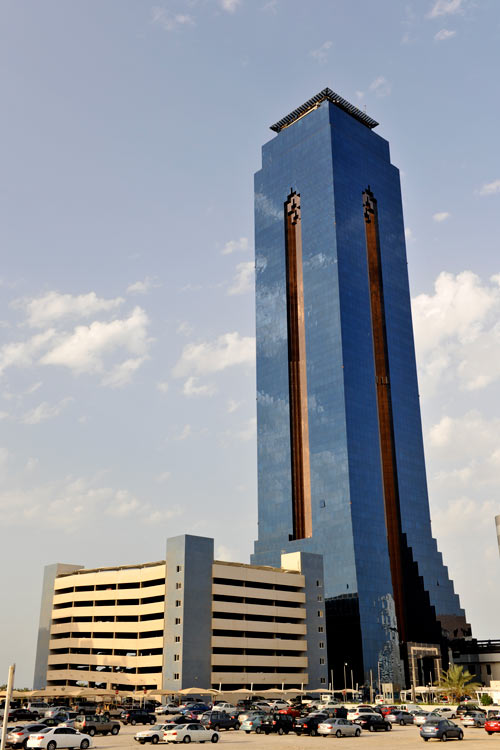
It is very big, but it is much better than it was five or six years ago. The problem with migrant workers is that it is one sort of human trafficking. Companies make money employing cheap labor, often contractors pay their laborers something like BD40/- or BD50/- dinars a month. And what is so sad is that before the workers come to Bahrain they are told a different story, for example, the agents in their country, there are so many bad agents; tell them that they will be paid BD120/- dinars a month. When they get here they are told that 40 dinars goes to accommodation and BD40/- dinars goes to food. They end up with a salary of 40/- dinars. In fact the company spends maybe 10 dinar on the food and accommodation, taking advantage of the cheap labor, this is really sad and a huge problem.
We have suggested to the Ministry of Labor to fix a minimum wage which we feel should be about 80/- dinars, to live a decent life in and save some money. The problem is that Bahrain is part of the GCC countries, if we enforce a minimum wage, we can no longer be competitive with other GCC countries.
Unfortunately, many laborers when they come to this part of the world they do not realize that life is very expensive compared to their home country. They can live luxuriously on BD40/- but in Bahrain they end up poor and will not be able to save any money.
We are just hoping to get more rights for migrant workers by going to international conferences with other GCC countries and trying to convince them to install a minimum wage for migrant workers.
How are you going to repeat the history of your company and bring something new to the GCC?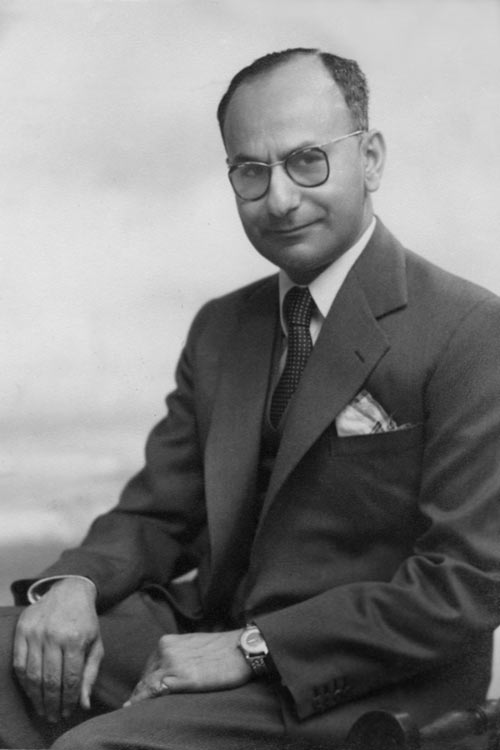
My father had quite long vision. He felt that the pearl business was dying so he went into electrical goods and in the 60’s he felt that automobiles were the best business. I feel we have reached a stage where it is more like globalization. We have done very well up to now in Bahrain but now Bahrain is open and there is no agency law. Before we used to make money being the agent for Nissan, Ford and Toshiba because no one could bring these goods to Bahrain without paying us commission. Now there is no such law.
We have decided under our new strategy to capitalize on globalization. For example, we acquired the brand name for Sansui. We pay them certain fees a year and we produce the products of TV’s and white goods from factories in China, we become the dealer for Sansui products in Qatar, Bahrain , Oman, UAE and four countries in Eastern Europe and four countries in Africa. We export from Jabel Ali Free Zone. Now we have electronics business in Qatar, Oman and UAE. We are starting business with system and trading in Oman and UAE for fire systems, burglar and CCTV system. Our strategy now is to go out of Bahrain into the GCC and the whole world.
Do you feel that this is the future?
Yes, when you go globally, your market is the whole world and we feel that we have reached that mature stage. We know how to deal with all these. We have very qualified managers that go around China to identify good factories for these productions.
We’ve really acquired some very good models for washing machines, fridges, ovens, gas cookers, and they have been selling very well in the GCC because with Sansui we are like the agent in three countries in the GCC. Right now we are not really making huge profits but I feel that in the future we will make much more.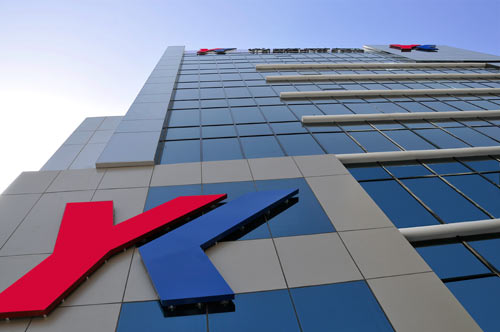
You mentioned that your aim is to grow by 20-30% in the next 5 years. However, what has happened has put a damper on your strategy. What do you feel are the main challenges that you expect in the future?
I am still very optimistic, we are getting some help from the GCC countries and Bahrain has a lot of projects in the pipelines. I don’t think we can grow by 20% this year, but if we can meet last year it will be a very good step.
I am hopeful that we will end the year 10% less than last year, if not the same. With stability and peace I am optimistic that Bahrain will have good growth, being part of the GCC market which is at present worth one trillion dollars and by 2030 it will be two trillion. I feel that there is a big scope for growing.
What are you expectations for what will be the third generation of the company? What do you hope to achieve and how are you preparing them for their role?
I really believe in involving the third and fourth generation. My father was the first and I am of the second but his father was also in business so you could say that I am of the third generation. Our children are all between the ages of 20-40 years now and at least four of them who are in the business and are doing very well.
I feel very happy when I work with them because they remind me of myself at their age. They are very optimistic and a bit too daring. I think for a business you need people who are brave. They look at the problem in a different way than I look at them and they always have an answer for problems. I am very happy with them and I feel that we did not make the mistake many family businesses made in the past to let the family member come in and boss the managers.
They don’t come in the way of the management, they are at the board level with us to discuss things, to solve problems and if they work in management they are under the CEO, trained to reach the top. We don’t have like, the son of the boss come and boss people and fire them which is what happened to most family business which ended by the third generations. We avoided that scenario and all our family member who are with us in the 3rd and 4th generations are either in the line of management or in the board level.
You are also a chairman of Bahrain’s Business Women’s Society, how do you see the increasingly important role of women in Bahraini society? What are the challenges, the stereotypes you are helping to fight?
The Bahraini Business Women’s Society just celebrated our eleventh year. It was established in 2000, we have really achieved many of our goals. This is my third term as a chair person; we support women in terms of empowering them to take leading positions. For example we promote women to be directors in public and private companies. We lobbied with government official officials to promote women to be in the leading positions in the different ministries. We wrote a letter from the society to Shaikh Mohamed bin Essa Alkhalifa, Chief Executives Officer of Economic Development Board to request a quota for women in the different ministries board and public companies board. Today only 2% of the board members are women. In the Chamber of Commerce and Industry, from next election, there will be minimum of 2 women members in the board.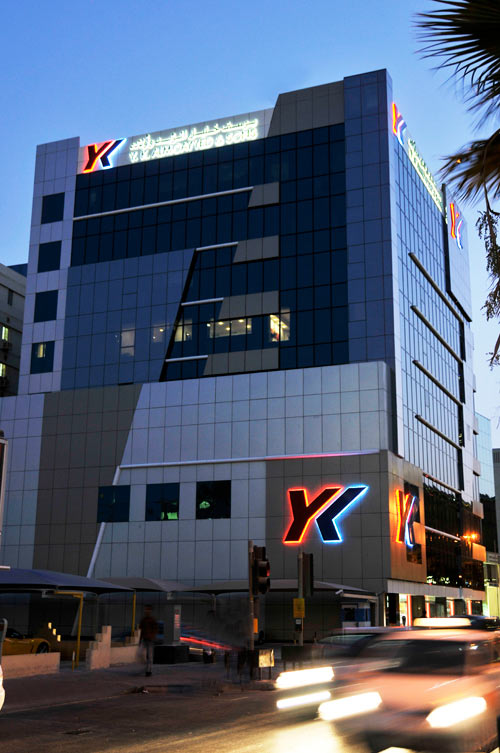
I feel that at the beginning you must force women and then, as in Europe, it becomes natural for them. In our world, women always have to work twice as much as men to reach the same position.
Also, with the Bahrain Business Women’s Society we are attending many conferences to represent women of Bahrain. Today in Bahrain we have ministers who are women, we have lawyers, judges, 60% of the doctors in government hospitals are women, and we have dentists. Bahraini women have really proved themselves
One of our big achievements is the creation of www. womengateway.com. a dedicated portal for women in the middle east. The portal has news of women in Bahrain and many research papers about women issues. It is in three languages, Arabic, English and French.
We have joined the Mepi (Middle East enterprener program Initiatives) programs, for the past 5 years, many programs to promote women, this started after September 11 when the United States decided to spend some money to promote women in the Middle East. We have done at least 20 events with support from the United States.
Our new initiatives is to include the young Bahraini women. The society is mostly people in their 50’s and 60’s so we are making new committees for women in their 30’s and 40’s to come into the society to be more powerful, to give them the encouragement to be a part of the society.
I think our biggest obstacle is discrimination against women. Although Bahraini laws do not discriminate between women and men, but when it comes to reality men don’t believe in women as much as they believe in men. Unfortunately, with the world’s financial crisis, we are getting less sponsoring and donations from different financial institutions.
How do you feel about the future of women in GCC?
I am really very optimistic about
women in the GCC,
I feel that finally our leaders are realizing that women can be as good as men.
I am really very optimistic about women in the GCC, I feel that finally our leaders are realizing that women can be as good as men. For example, when I was in my 20’s you could never hear of a woman in the ministry beyond the clerical level but now you see ministers, who are women, doctors, lawyers, and many professional. Actually in Bahrain Universities, more than 70% are women, and at the end of the year more than 70% of the top grades are women, so there are lots of intelligent women in the GCC.
I am very optimistic that we will be given more rights. Of course, we can vote and we can nominate ourselves which is a big step for Bahrain. In our laws we are as good as Europe as far as the rights of women, but in practice and in mentality, we are behind.
How do you manage to coordinate between all your responsibilities?
I must admit that it is difficult sometimes to juggle between family responsibilities, husband, children, and work in the family business, and social responsibilities. But I really enjoy my work, I enjoy mostly, our family business and I enjoy improving the businesses in term of quality. We have started the balance score card which is to improve efficiency. We have also concentrated a lot on HR issues, on improving employee satisfaction. We care about our employees and feel they are our greatest asset. About 30% of our employees are Bahrainis and now we are about 4000 employees which is a huge number but we manage to make them motivated, bring them in the business and have really contributed to the employment of Bahrain nationals, which I’m very proud to say.
You have opted not to go into initial public offering; you would like to stay private, like IKEA for instance. What are the advantages of this structure and how do you see the future?
Actually, going back before the financial crisis of the world it was the fashion for all family business to turn into public offering and go public. Many companies have done that, and we were thinking of that as well during the boom time. But we never got around to doing it and then the financial crisis started so we kept it on hold. I personally, and I am one of six brothers and sisters some of whom want to go public, but I personally am not really in favor of going public.
I really believe that a private company can be more successful than a public company because you always look at the long view of finances of the company and where you want to be in 10 or 20 years time. In a public company you always think of the end of the year and how to make your investors and your share holders happy.
Sometimes you make decisions, not for the good of the company, but to show your shareholders that you have made a profit. But in actual facts it isn’t good for the company, this is why you see Mars and IKEA being so successful because they want to increase the equity of the shareholders in the long run, and not on a year to year basis.